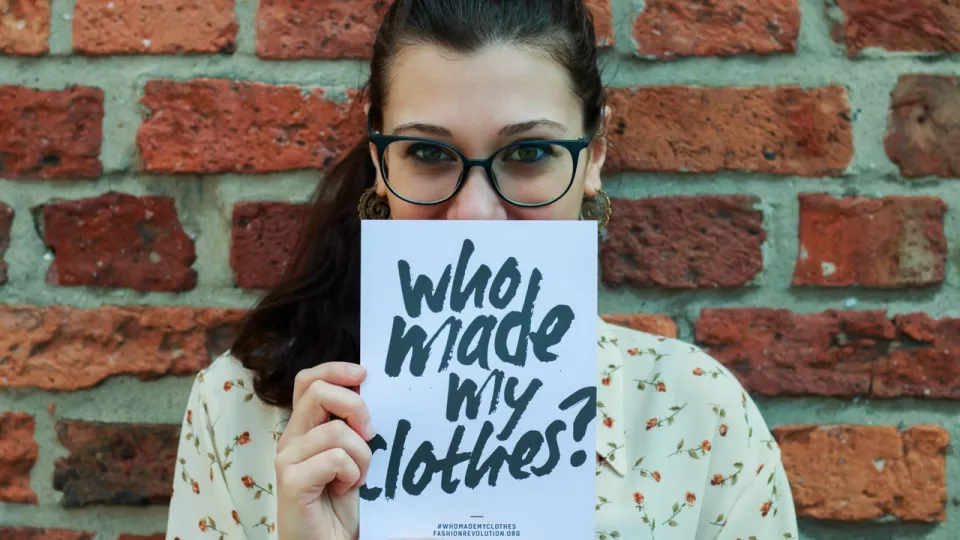LUMES student Ilaria Tafuri will host a talk on Slow Fashion at the upcoming Sustainability Festival, 20th May. Here she highlights some of her main talking points – and shares her advice on how to change your consumption behavior!
Her talk will be held at 15.30 in one of the Conference Rooms on the second floor in the City Halll, Stortorget (Stadshallen).
What will your talk be about?
The main topic will be sustainable fashion: what is meant by it, what it stands against, what forms it takes and how we can approach our fashion purchases more sustainably.
Why did you choose this topic?
Besides my personal interest, this decision has very much to do with the work for my Master’s thesis in Sustainability Science. The research I undertook exposed me to the entity of the impact of fashion on both the environment and the people: we consume and waste too much, forgetting that we have no planet B to take our resources from. As we all need and buy clothes, we all need to be a little more informed and aware about the hidden costs of “fast” fashion.
What do you want the public to take with them?
I would be happy if participants leave the session with some food for thought, inspired to reflect a little longer on what they are buying, what it is made of, who made it, how often it will be worn.
What tips would you give people interested in changing their consumption of fashion?
Take your change one step at the time. Changing our consumption behaviour drastically can be challenging, and many can be discouraged and stop trying. As a student, moreover, I realise that shifting to sustainable fashion consumption can be rather costly. My tip is: start by buying second-hand or swapping clothes with your friends, and then progressively invest in good-quality, ecological and ethically-made clothes.
